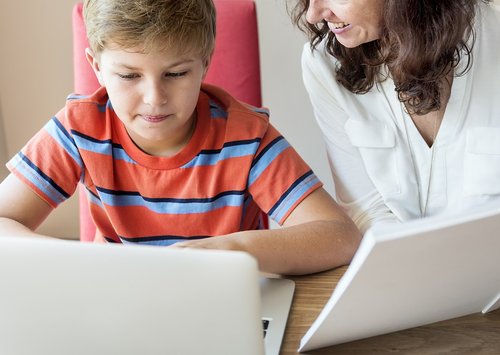There are both good and bad things about Bilingual Homeschooling. This article talks about them. This includes schools where students speak more than one language every day.
Is going to a Bilingual Homeschooling the best thing for you and your child?
It's becoming more and more popular for parents to send their kids to Bilingual Homeschooling worldwide for several reasons.
It's possible to go to a Bilingual Homeschooling by choice, or because you live in another country and don't speak the language there.
Some families will look for an international school that allows their children to speak both their language and the language of the community, so they can help them get to know their new home better.
Other families want their kids to speak two languages well. There are a lot of studies that show that being bilingual is good for you. You might be able to send your child to a Bilingual Homeschooling if you have the time and money.
There are good and bad things about sending your child to a Bilingual Homeschooling, so it's important to know what to look out for. Unfortunately, many families have a hard time figuring out how to weigh these things, depending on where they live.
It isn't always easy for parents who want to send their kids to a Bilingual Homeschooling to decide if it is right.
Bilingual Homeschooling is a good thing to do for your child.
Even if their parents don't speak the same language, they can raise bilingual kids.
You can send your child to a Bilingual Homeschooling as a parent even if you don't speak another language. This way, your child can learn a second language. Even if you can speak another language, it won't always be enough for you to teach your child the language yourself. If your child goes to a Bilingual Homeschooling, they will learn the language every day.
Bilingual Homeschooling gives students a good mix of exposure to both languages.
When you go to a Bilingual Homeschooling, one of the best things is the good mix of languages there. Every day, children are taught both languages. This gives them a chance to speak and think in both languages.
Children learn to speak and write in two languages.
When raising a bilingual child, communication is usually the most important thing to think about at first. When your child grows up, they'll need to be able to speak and write in both languages. They'll need to learn how to read and write.
It will make sure your child is bilingual and bi-literate if you send them to a Bilingual Homeschooling. They will be taught in both languages, so they will also learn to read and write.
People who speak two languages learn to think in both languages as they grow up.
As soon as you start to think in a language, your fluency has reached its peak. Therefore, they will be taught in two languages to think in both.
The more you read, write, and solve problems in both languages every day, the better you will get at them.
Some things you should think about before sending your child to a Bilingual Homeschooling
Bilingual Homeschooling can be pricey.
Most Bilingual Homeschooling is international or private so that tuition costs can be high. However, if you think about the cost of private language lessons, it can still be worth it to raise a bilingual child.
There aren't enough qualified teachers who can teach English and French.
Unfortunately, qualified bilingual teachers are hard to come by. Moreover, Bilingual Homeschooling is very different from monolingual ones because many problems can happen when teaching in one.
It's hard to find teachers who teach bilingual kids or kids who aren't completely fluent in both languages. Of course, people who teach need to be trained in this field, but few are.
In bigger cities, Bilingual Homeschooling is more likely to be.
A Bilingual Homeschooling near you may not always teach the language you want to learn. Also, if you speak a different language or live in a different place, it might differ. For example, many big cities have some Bilingual Homeschooling, but if you live outside of the city or in rural areas, you'll not likely be able to go to one.
Bilingual education needs to be consistent for it to work well for everyone.
A child's age makes it a lot easier for them to speak both languages during the class. However, as they get older and go to high school, it gets more difficult to keep up with both of them at once.
It's not true that all Bilingual Homeschooling teach in both languages equally. One language is the most important. Then there is a second language. For a child to have bilingual education, it needs to be the same through their school years. To help their kids learn two languages simultaneously, many families choose to homeschool.
Making a list of the pros and cons
These benefits and drawbacks of Bilingual Homeschooling show that families and students have to think about when they choose where to send their kids to school. It makes sense for families who speak more than one language to want their kids to go to school in two languages. So to figure out if sending your child to a Bilingual Homeschooling is the best choice for you, you need to think about it.
0





